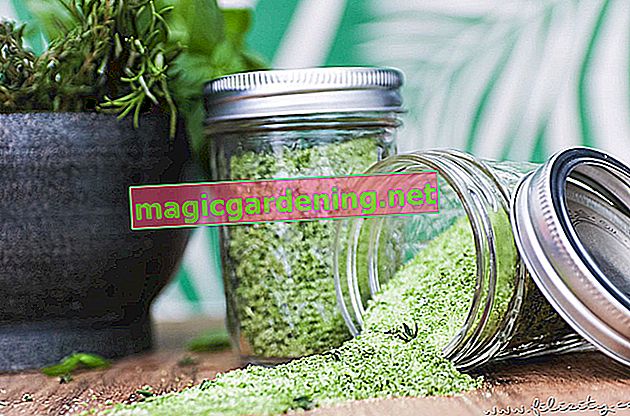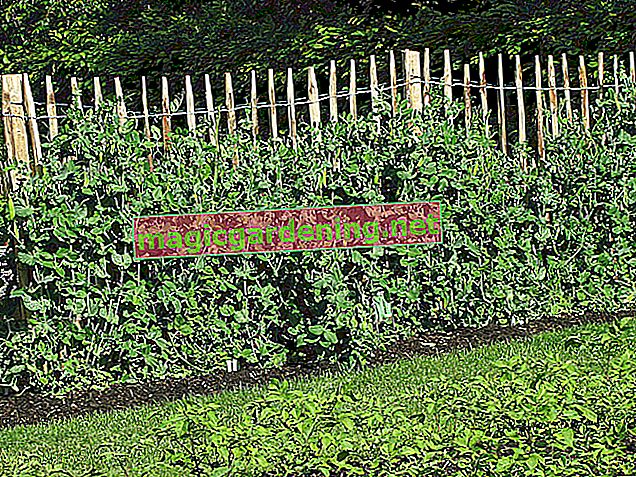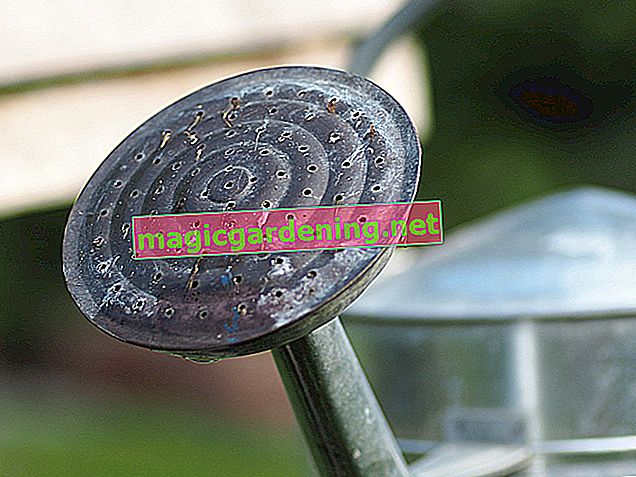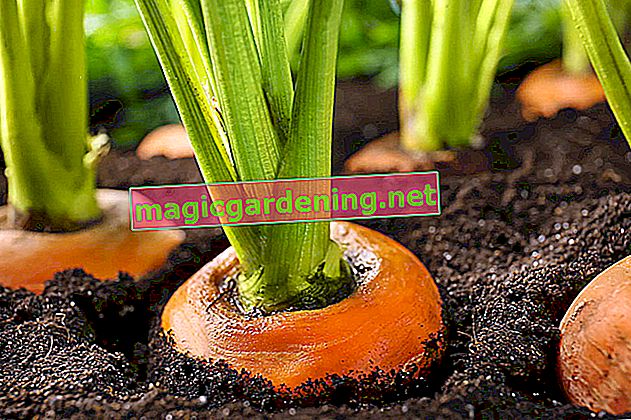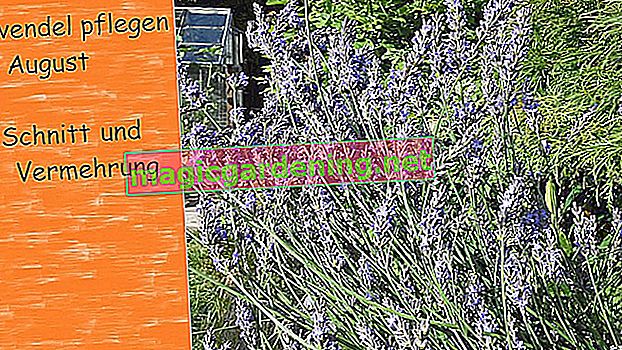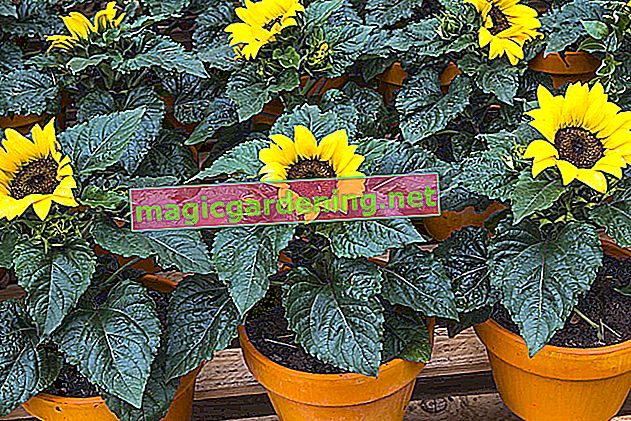
How is the sunflower watered in the pot?
Sunflowers in pots need a lot of water. Daily watering is mandatory. But make sure that there is no waterlogging.
also read
- The right location for sunflowers
- Sunflowers are not poisonous, they are even edible
- Pulling sunflowers on the balcony
The plant pot should always have a drainage hole and stand on a coaster. Place a pottery shard on the drain hole to prevent it from becoming clogged.
Excess irrigation water should be poured out as soon as possible.
How often does the pot sunflower have to be fertilized?
As a heavy eater, the sunflower needs a lot of nutrients in the pot. Fertilize with a nitrogenous fertilizer at least once a week.
Ripe compost, horn shavings (€ 6.39 on Amazon *) or nettle manure are ideal.
You can also fertilize sunflowers in pots with liquid fertilizer from the garden specialist, as the hormone-treated kernels of small sunflower varieties should not be eaten anyway.
Can the plants be repotted?
Sunflowers are annual plants. They are usually not repotted. Only if the planter is much too small should you put the flower in a larger container or, if possible, plant it outdoors.
Do sunflowers need to be cut in a pot?
Annual sunflowers do not need to be cut at all. Faded flower heads can stay on the stem, where they ripen by themselves.
If you want to dry sunflowers, on the dryest day possible, cut only those flowers that are not yet fully open.
Which diseases and pests can occur?
Leaf spot disease, powdery mildew and downy mildew as well as various fungal diseases can cause problems for the sunflower. In an airy, warm location, however, diseases rarely occur.
You should watch out for these pests:
- lice
- Thrips
- Bed bugs
- Leaf miner
- Caterpillars
Can sunflowers overwinter in a pot?
Most sunflowers are annual. Only perennial shrubs need to be overwintered frost-free.
Tips & Tricks
If you want to grow sunflowers in pots, you should give preference to small varieties. “Double Dandy”, “Teddy Bear” or “Yellow Knirps” are well suited. Remember, however, that the seeds have been treated and the pips collected from the flowers usually do not germinate.




